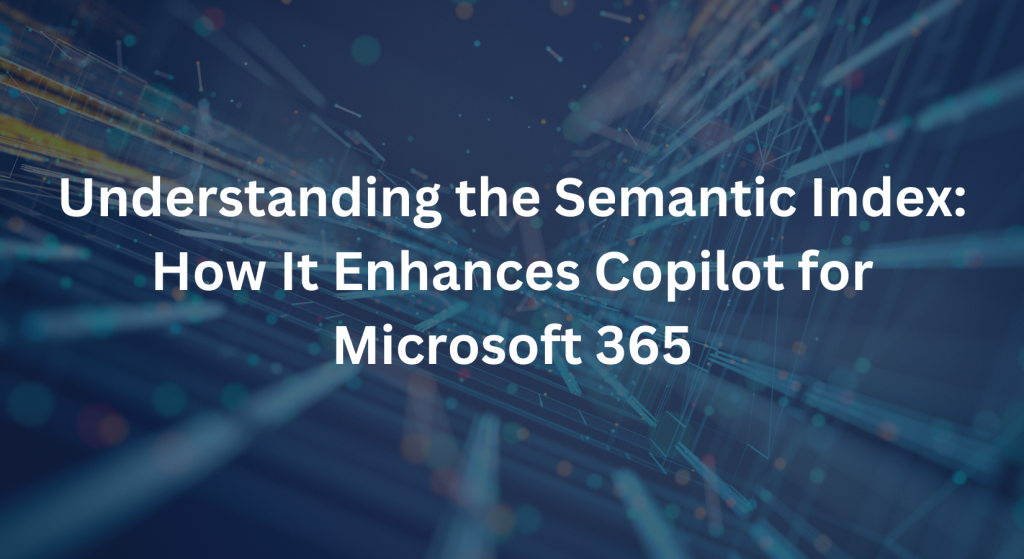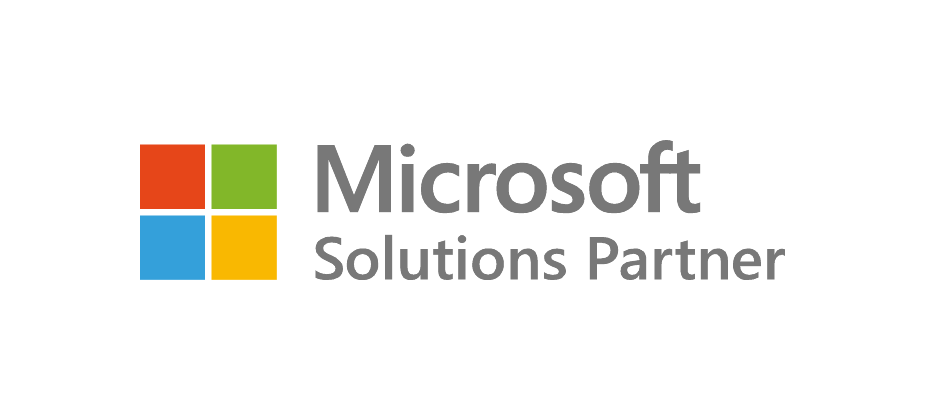
In today’s fast-paced digital landscape, productivity tools must evolve to meet the growing demands of users seeking efficiency and intelligent assistance. Copilot for Microsoft 365, an AI-powered tool integrated into various applications like Word, Excel, PowerPoint, Outlook, and Teams, exemplifies this evolution. One of the key innovations enabling Copilot’s advanced functionalities is the Semantic Index. This blog explores what the Semantic Index is, how it works, and how it enhances the capabilities of Copilot for Microsoft 365.
What is the Semantic Index?
The Semantic Index is an advanced AI-driven framework that helps organize, interpret, and retrieve information based on its meaning rather than just keyword matching. It builds a deep understanding of the content, context, and relationships within documents, emails, spreadsheets, and other data types across Microsoft 365 applications.
How the Semantic Index Works
- Contextual Understanding:
- The Semantic Index leverages natural language processing (NLP) to analyze and understand the context of words and phrases within documents and emails. This goes beyond simple keyword matching, allowing the system to grasp the nuanced meanings and intentions behind the text.
- Content Categorization:
- It categorizes and tags content based on themes, topics, and entities, creating a structured representation of the information. This helps in organizing large volumes of data and making it more accessible for retrieval and analysis.
- Relationship Mapping:
- The index maps relationships between different pieces of information. For example, it can link related documents, emails, and calendar events based on their content and context, providing a comprehensive view of interconnected data.
- Continuous Learning:
- Utilizing machine learning algorithms, the Semantic Index continuously learns from user interactions and feedback. This adaptive learning process improves the accuracy and relevance of its analyses over time.
Enhancing Copilot with the Semantic Index
- Improved Search and Retrieval:
- With the Semantic Index, Copilot can perform more accurate and contextually relevant searches. Users can ask complex questions or search for specific information, and Copilot will retrieve the most pertinent results, considering the context and relationships between data points.
- Intelligent Summarization:
- Copilot leverages the Semantic Index to generate summaries of lengthy documents and email threads. By understanding the core themes and key points, it can provide concise and informative summaries that help users quickly grasp essential information.
- Context-Aware Assistance:
- When drafting documents, emails, or presentations, Copilot uses insights from the Semantic Index to offer contextually relevant suggestions and recommendations. This ensures that the assistance provided is aligned with the user’s intent and the content’s overall context.
- Enhanced Data Insights:
- In Excel, Copilot utilizes the Semantic Index to analyze datasets more effectively. It can identify trends, generate meaningful insights, and present data in a way that highlights the most significant aspects, aiding users in making informed decisions.
- Streamlined Collaboration:
- The Semantic Index enhances collaboration by linking related documents, emails, and notes. In Teams, Copilot can provide summaries of past meetings, highlight action items, and ensure all team members have access to relevant information, thus improving coordination and productivity.
Real-World Applications
- Project Management:
- Project managers can benefit from Copilot for Microsoft 365’s ability to summarize project documents, highlight key milestones, and ensure that all team members are on the same page regarding project goals and timelines.
- Customer Support:
- Customer support teams can use Copilot for Microsoft 365 to quickly retrieve relevant information from past interactions, helping them provide more efficient and informed responses to customer queries.
- Financial Analysis:
- Financial analysts can leverage Copilot for Microsoft 365’s data insights to identify trends, forecast outcomes, and generate detailed reports that support strategic decision-making.
Conclusion
The Semantic Index is a powerful tool that significantly enhances the capabilities of Copilot for Microsoft 365. By providing a deeper understanding of content and context, it enables more intelligent assistance, accurate data retrieval, and insightful analysis. As a result, users can experience a significant boost in productivity and efficiency, making Microsoft 365 an even more indispensable suite of tools for modern professionals.

Recent Posts
- Thinking About Leaving GoDaddy? Discover How to Gain Full Control of Your Microsoft Tenant and Boost Security
- 5 Advanced Security Features of Azure Virtual Desktop for Enterprise Protection
- Top 10 Questions IT Leaders Ask About Azure Virtual Desktop (AVD)
- How Azure Virtual Desktop Simplifies Remote and Hybrid Work for IT Leaders
- Azure Virtual Desktop vs. Windows 365: Which Cloud Desktop Solution is Right for Your Business?
Each Azure project begins with a comprehensive Azure assessment, during which our team evaluates the existing environment, tackles challenges like compatibility and security, and designs a personalized migration approach.
